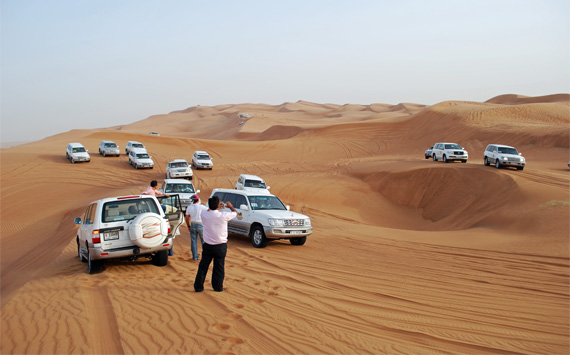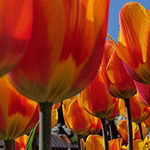There are four things that you have to be on the lookout for in order to keep your DSLR away from danger: sand, water, heat, and dust.
What are the signs that your DSLR has already come into contact with any of the four elements? How can you prevent damage to your camera?
1. Stay Away From Sand
Signs That Your DSLR Is Already In Trouble
When your camera gets into contact with sand, you will notice that the moving parts of your DSLR get stuck. An error message may appear on your LCD.
How To Resolve This Problem?
It’s bad news that sensor cleaning kits won’t be able to come to your DSLR’s rescue. Not even gadgets that puff air.
Your only option here is to send your camera to a dealer who will do the cleaning for you. Otherwise, you can take it to the manufacturer.
They’ll take it apart then clean and re-lube all the moving parts.
Tips to Avoid Getting Your DSLR Into Trouble with Sand
Fortunately, there are numerous methods you can implement to keep sand from entering your DSLR. One of the many methods is to make use of a sealable food bag. Another tip is to not get low while shooting in a sandy area. Doing this is inviting sand to hop onto your lenses.
Despite that, you can put towels in an ice chest cooler and keep your camera in it. Why not just use the camera bag? Camera bags trap sand. Your goal here is to not let sand harm your DSLR.
Also, while you’re shooting, be on the lookout for incoming sand. You must anticipate danger. For instance, if you see kids running past you, then quickly save your camera.
2. Water Isn’t Good For Your DSLR
Signs That Your DSLR Is Already In Trouble
Once your camera has gotten into contact with water, immediately remove the battery. Do not turn it back on as a killer power surge could be released.
Be on the lookout for corrupted files and error messages on your DSLR’s screen.
Also, be watchful that if your camera happens to turn off unexpectedly, it is most likely that your camera has already been hit with water.
How To Resolve This Problem?
The best way to solve this is to get professional advice from a dealer. Place your DSLR (although already damaged) in a bag of dehumidifying sachets to help it dry.
Tips To Avoid Getting Your DSLR Into Trouble with Water
Something that you should consider doing is to invest in a camera encasement. Also, save up some money to invest in a waterproof rolling bag. Another way to avoid your DSLR from getting hit by water is to never put it on a table next to drinks.
When you’re photographing at a location where there is water nearby, especially in splashy conditions, be sure to use a zoom lens to keep your camera from being hit by water.
Never attempt to switch lenses during snowy or very cold weather conditions. If you have to switch lenses, then perhaps do it under your coat or a blanket. Be creative here.
3. Refrain From Heat
Signs That Your DSLR Is Already In Trouble
Although most of the latest cameras are tailored to withstand extreme weather conditions, there still are a few types of heat that are very bad for DSLRs.
These types of heat are direct sunlight and hot enclosed air. An example of hot enclosed air is the hot air trapped in a car’s boot under the hot sun.
The polymer glues, glass coatings, and plastic casings within your camera kit may be damaged by heat. When the heat is very strong, the oils in your camera that act to lubricate the inner workings can indeed evaporate.
Also, be watchful in case your memory card is no longer working right. If your DSLR’s screen appears to be malfunctioning, it is very likely that your camera has been exposed to conditions with extreme heat.
How To Resolve This Problem?
If you touch your camera and notice that is burning hot, leave it somewhere shady and let it cool down. Once cooled, remember to replace the memory card with another one before you use it.
However, if the damage of your DSLR is serious, be sure to bring it to a dealer to be analyzed.
Tips to Avoid Getting Your DSLR Into Trouble with Heat
Never put your DSLR in a car while the sun is shining very brightly. Also, while you’re out photographing, put your DSLR in shade whenever possible.
4. Avoid Dust
Signs That Your DSLR Is Already In Trouble
It’s easy to check if your DSLR has already been affected with dust by looking at the resulting photos. When you see little black specks on them, it’s a sign that your DSLR has already been attacked by dust.
Dust that lands and get stuck on your camera’s sensor forms tiny black specks on your photos. Dust has the tendency to affect autofocus.
How To Resolve This Problem?
Some of the latest DSLRs have great features that will periodically shake dust off your DSLR’s sensor. This cleaning system is set by default. What I like about this system is that it actually rids off dust before it can even become a problem to your DSLR.
Tips To Avoid Getting Your DSLR Into Trouble with Dust
Place your camera in an appropriate place when you’re not using it. Keep the insides of your camera away from dust. This can be done as long as you avoid leaving your camera without a lens.
Avoid switching lenses in dusty areas. If you really have to switch lenses despite the dusty condition, then you must hold your camera so that the lens mount faces downward. This way, dust will not fall and later get trapped onto the sensor.
About the Author:
This article was written by Michelle Lee Fui Jinn, tipsforphotographers dot com. It takes time to practice and improve your photography skills.
Like This Article?
Don't Miss The Next One!
Join over 100,000 photographers of all experience levels who receive our free photography tips and articles to stay current:







When i know my camera suspected is a little bit wet/watery,then just place in room with AC switch on for 1 night then the water will gone without any spot left on it.
I sure wish that folks that write articles would re-read them before posting! The first sentence and title say four things, but the second sentence lists five things! And the rest of the article has typos and errors that are frustrating. Is it too much to ask for writers to proof read themselves at least? Better to have someone else do it, but at least do a basic check yourself if you have no one. I re-read my “comment” postings since I do not wish to be embarrassed by the smallest record of my words, much less a full article.